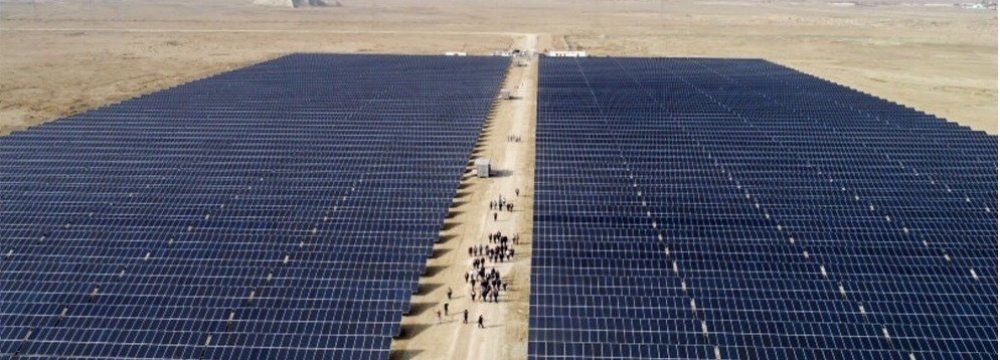
Green Energy Helping Cut Gas Consumption, Greenhouse Gases

If the same amount was produced by thermal power plants that consume gas as feedstock, 1.23 billion cubic meters of gas would be burnt, ILNA reported.
Producing electricity from green sources has helped the country reduce greenhouse gases by as much as 2.97 million tons in the ten years.
Reducing greenhouse gas emissions is among the major challenges nations big and small are facing to varying degrees.
Greenhouse gases are capable of trapping the earth's emitted radiation, which otherwise escapes back into space. The primary greenhouse gases in the atmosphere are water vapor, carbon dioxide, methane, nitrous oxide, and ozone.
Renewable electricity has also helped save more than 950 million liters of water over the last decade.
Iran's installed power capacity is about 82,000 megawatts, of which 850 MW comes from renewable sources including solar, wind, small-scale hydroelectric and waste-to-energy power plants and biomass factories.
Renewable energy is the least expensive option for improving access to electricity, reducing air pollution and cutting CO2 emissions.
Investment by the private firms in the sector has surpassed $1.1 billion, mostly in building solar power plants.
There are 115 large-scale solar plants in the country and 37 are under construction. Over 3,550 small-scale photovoltaic stations have been installed and 2,350 PV systems will be set up soon.



Trump weighs using $2 billion in CHIPS Act funding for critical minerals

Codelco cuts 2025 copper forecast after El Teniente mine collapse

Electra converts debt, launches $30M raise to jumpstart stalled cobalt refinery

Barrick’s Reko Diq in line for $410M ADB backing

Abcourt readies Sleeping Giant mill to pour first gold since 2014

Nevada army depot to serve as base for first US strategic minerals stockpile

SQM boosts lithium supply plans as prices flick higher

Viridis unveils 200Mt initial reserve for Brazil rare earth project

Tailings could meet much of US critical mineral demand – study

Kyrgyzstan kicks off underground gold mining at Kumtor

Kyrgyzstan kicks off underground gold mining at Kumtor

KoBold Metals granted lithium exploration rights in Congo

Freeport Indonesia to wrap up Gresik plant repairs by early September

Energy Fuels soars on Vulcan Elements partnership

Northern Dynasty sticks to proposal in battle to lift Pebble mine veto

Giustra-backed mining firm teams up with informal miners in Colombia

Critical Metals signs agreement to supply rare earth to US government-funded facility

China extends rare earth controls to imported material

Galan Lithium proceeds with $13M financing for Argentina project

Kyrgyzstan kicks off underground gold mining at Kumtor

Freeport Indonesia to wrap up Gresik plant repairs by early September

Energy Fuels soars on Vulcan Elements partnership

Northern Dynasty sticks to proposal in battle to lift Pebble mine veto

Giustra-backed mining firm teams up with informal miners in Colombia

Critical Metals signs agreement to supply rare earth to US government-funded facility

China extends rare earth controls to imported material

Galan Lithium proceeds with $13M financing for Argentina project

Silver price touches $39 as market weighs rate cut outlook

















